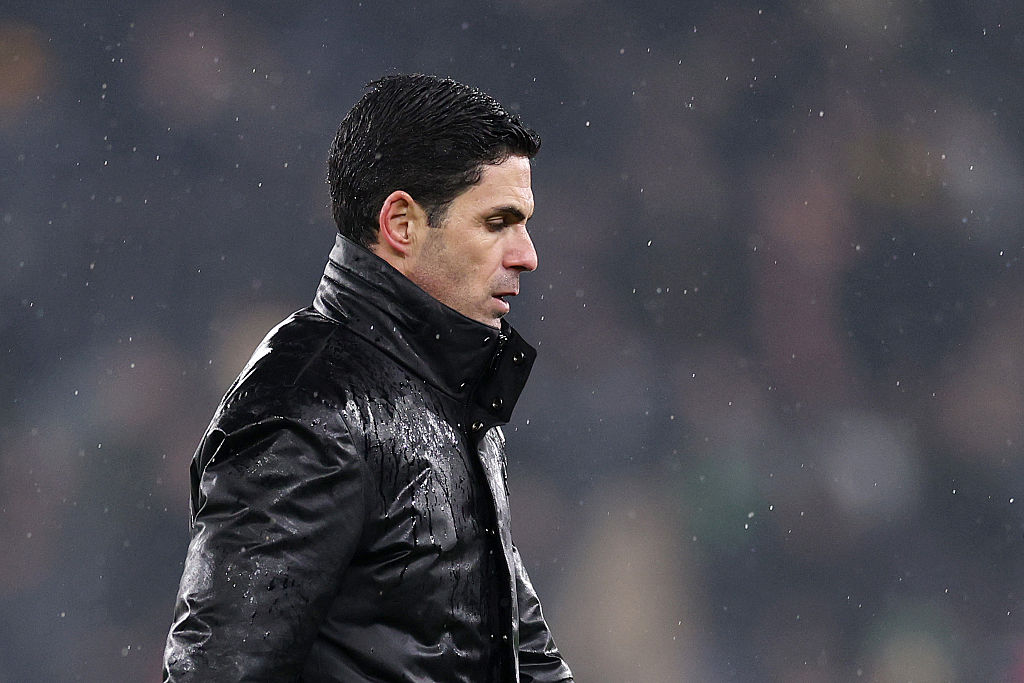What Lewandowski's Bayern move means for Borussia Dortmund... and Mandzukic
Alima Hotakie picks up the pieces after the Pole's less-than-surprising announcement...
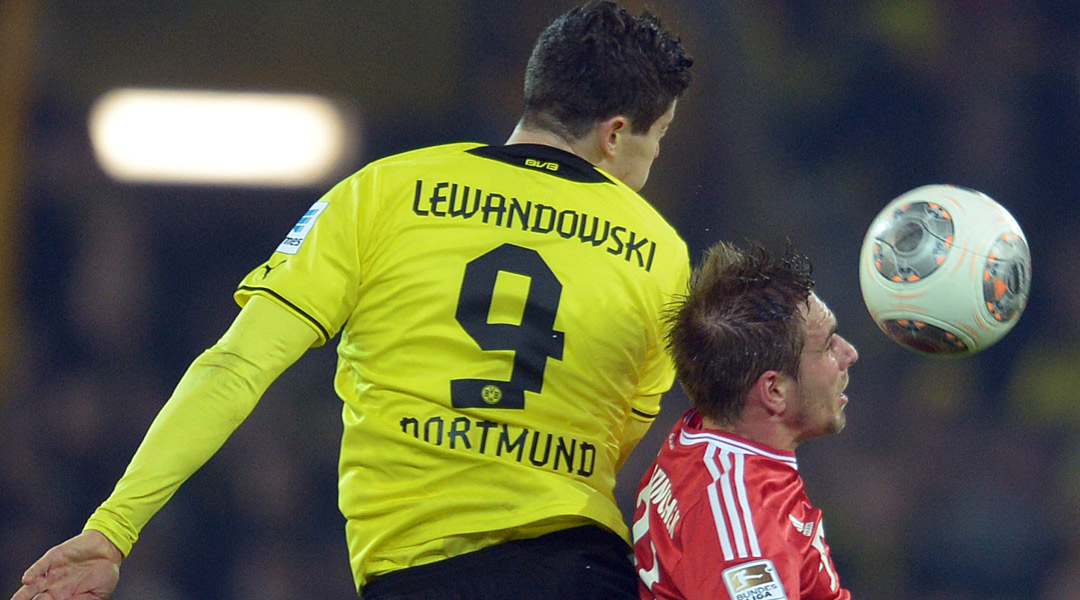
The best features, fun and footballing quizzes, straight to your inbox every week.
You are now subscribed
Your newsletter sign-up was successful
Want to add more newsletters?

Five times a week
FourFourTwo Daily
Fantastic football content straight to your inbox! From the latest transfer news, quizzes, videos, features and interviews with the biggest names in the game, plus lots more.

Once a week
...And it’s LIVE!
Sign up to our FREE live football newsletter, tracking all of the biggest games available to watch on the device of your choice. Never miss a kick-off!
Join the club
Get full access to premium articles, exclusive features and a growing list of member rewards.
In April last year, Bayern Munich president Uli Hoeness expressed concern for the decline of competitiveness in the Bundesliga. He feared a La Liga-style duopoly – "Spanische Verhältnisse" (Spanish conditions) – after Borussia Dortmund and Bayern proved their dominance extended beyond their starting XIs by thrashing opponents with their B and C teams.
"One must find out if there's the need to change something," said Hoeness. "But my gut feeling tells me that all is not in order with the way things are in the Bundesliga at the moment."
A proactive Hoeness went on to say that he'd meet Dortmund CEO Hans-Joachim Watzke and other club chiefs to further discuss the matter, insisting it was vital for the rest of the league to keep up with the top teams.
What no one expected was that nine months on, a two-horse race would be desirable; the duopoly has become a monopoly. Keeping up with last year's Champions League winners has been a real struggle even for Dortmund, who have shown that they just don’t have the depth to deal with injuries.
The best features, fun and footballing quizzes, straight to your inbox every week.
Losing players to their rival only makes it worse. Die Schwarzgelben coach Jürgen Klopp surely offered a more accurate insight after Mario Götze's transfer when he said he was wary of a Scottish situation, where the league is dominated by a single team.
What angers fans is the contradiction in Hoeness's statements, of a situation that his club's very own transfer policies appear to exacerbate. Even as he offered his legitimate critique in April, club officials were pursuing Dortmund's key creator Götze, with an official announcement right before the Champions League final.
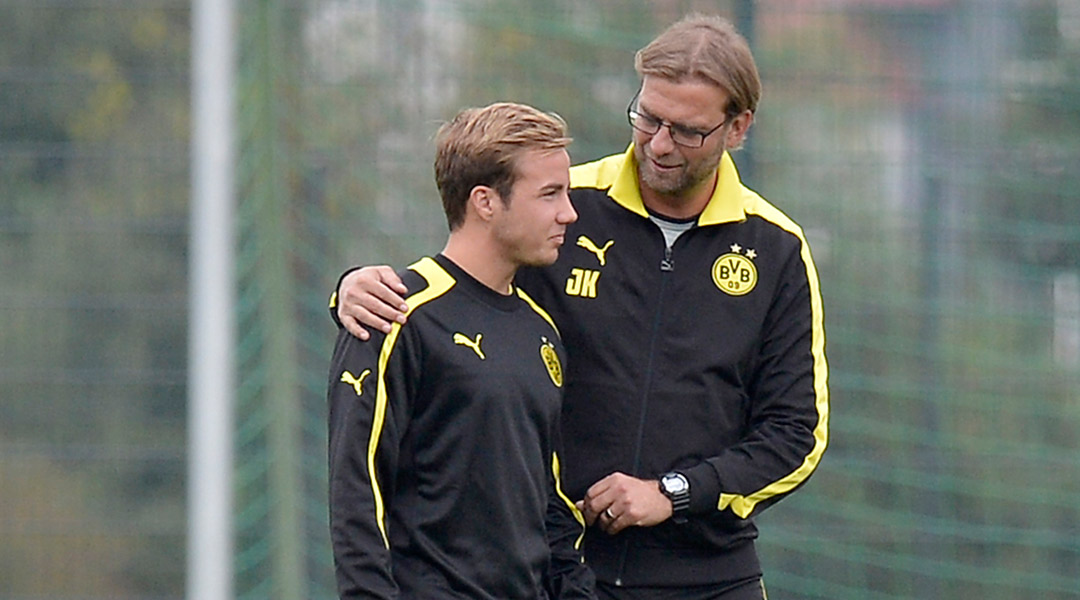
Furthermore, last week they signed a pre-contract with Robert Lewandowski, who will join Bayern in the summer. Within nine months of Hoeness's concerned pluralism, Bayern have taken Dortmund's No.9 and No.10.
Dirty tactics, or just a longstanding strategy? Since the 1980s Bayern have been notorious for signing from direct competitors; in recent years they have plucked prime players from Werder Bremen (Miroslav Klose, 2007), Bayer Leverkusen (Ze Roberto, 2007), Stuttgart (Mario Gomez, 2009) and Schalke (Manuel Neuer, 2011) among others.
But Bayern insist the weakening of the opposition is incidental. Last February, when rumours first surfaced that Bayern intended to take Lewandowski as well as Götze, Hoeness dismissed the accusation: "Honestly, it's never our interest to weaken others. We used to do it in the past, but that could only have been a side effect."
Bayern claim their main focus is strengthening their own team: rather than dominating domestically, they sign players to compete continentally. Adding Lewandowski, a player in his prime, on a five-year contract will surely give Bayern an exceptional long-term striker – for no transfer fee. The club doesn't hide its aim to create a dynasty and undeniably has the tools to achieve that now. So strong are Bayern that even Klopp said Lewandowski won't make them any better.
Is the Bundesliga still blossoming?
There has been widespread speculation this season about what is happening to one of Europe's most competitive and unpredictable leagues. Its competitiveness has come into question, with some even pointing to the drawbacks of the popular 50+1 system which bans majority ownership of any club by a single sugar-daddy.
The Bundesliga table may look a little lopsided this season but there's no reason to panic. Firstly, dominance is natural when both of last season's Champions League finalists are in the same league. Second, a treble-winning team like Bayern would dominate anywhere, regardless of opposition: this is the same team that didn't just win, but hammered teams like Barcelona and Juventus on their path to Champions League glory last year.
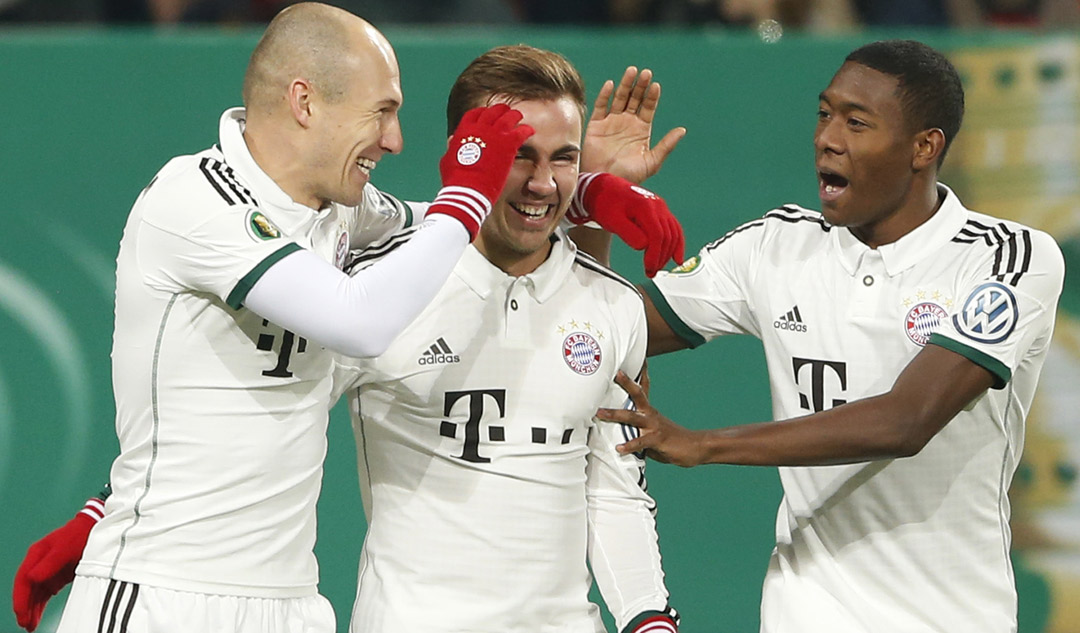
If this season's Bundesliga is less of a race than a procession, that's down to Dortmund's injury woes and inconsistency. But that in turn feeds into an increasingly interesting battle for the other European qualification spots, with Hertha Berlin, Borussia Mönchengladbach, Wolfsburg and Augsburg surprising most German analysts and pre-season predictions. The relegation battle is also tight.
True, the title race lacks excitement compared to this season's Premier League – but then again the last two seasons in England have also been closed shops, with 2012's two-horse race followed by Manchester United running away with it last year.
Temporary trends should serve as reminders not to draw drastic conclusions about leagues based on one or two seasons. Compared to its counterparts, the Bundesliga has still produced more different winners over the last decade (five, compared to four in England, and three in Spain and Italy). What should serve as a worry, however, is if the current situation develops into a long-term trend as is the case in La Liga or Scotland.
Dortmund's boots to fill
But what does this mean for a club like Dortmund, whose charismatic coach is working on what he dubbed the "most exciting project in European football"?
One positive is that they have plenty of time to find a replacement for Lewandowski. Although few will argue that BVB should have sold the Polish striker last summer for financial reasons, the move would have likely been more detrimental at that time. They had already lost Götze and were scrambling to find replacements, bringing in Henrikh Mkhitaryan and Pierre-Emerick Aubameyang in the summer. To lose another nucleus player and expect to find a quick replacement would have only added a sense of instability and rash decision making the club might later regret.
The 'no' gesture to Bayern also sent out the message that it's not always about money, and that the club is confident success in the Champions League will compensate for the loss. In the end it was the right decision given Lewandowski's continued role in helping the team win important games. While he's not as clinical as last season, he's still tied as the league's top scorer with 11 goals. There are several players already linked to the club. Edin Dzeko would be an ideal replacement, but his price tag will surely exceed BVB's budget limits. Other possibilities include Kevin Volland, Mame Diouf, Michy Batshuayi, Christian Benteke, Adrian Ramos, Diego Costa and Jackson Martinez.
Lewandowski is the type of player that is hard to replace. He has scored 65 goals in 115 league games as well as 15 goals in 25 Champions League matches. He fits Klopp's system, style and counter-attacking football magically, and finding a replacement of his level won't be easy. While Die Schwarzgelben remain confident 'Lewy' will give it his all - the player has also promised that commitment - to outsiders his performances have been questionable. With some feeling the sharpness and concentration from last season is absent.
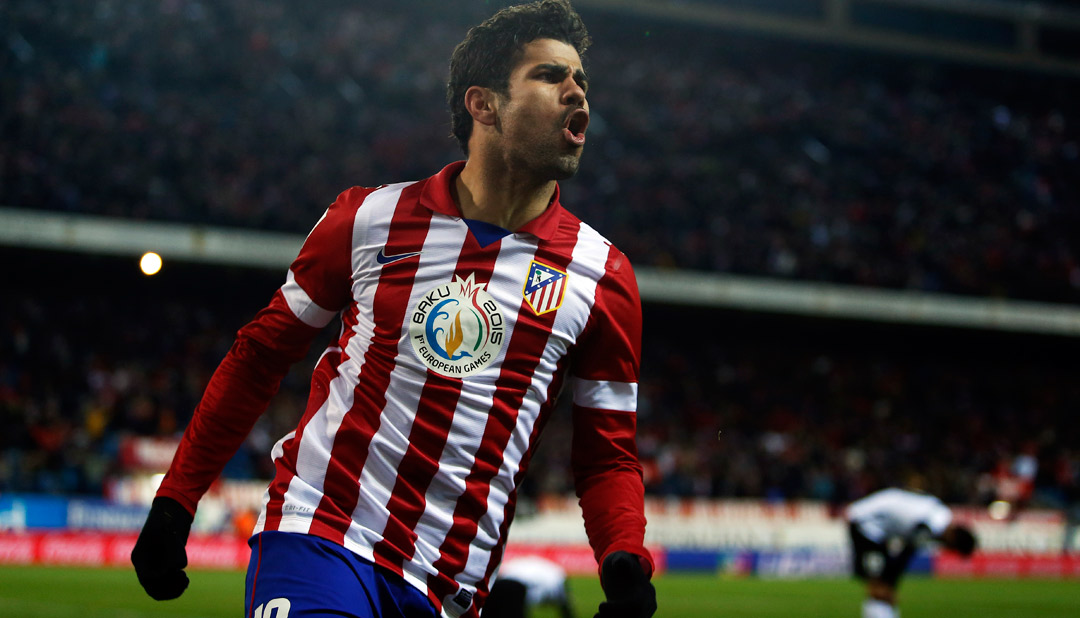
Ultimately now that the most anticipated non-surprise is over, it's vital for Dortmund to focus on their long-term future. That starts by convincing Ilkay Gundogan to extend his contract, as well as Marco Reus in the near future. How the exiting of Götze and Lewandowski will influence these two players’ decisions remains unknown. One hopes the examples of Nuri Sahin and Shinji Kagawa will illustrate that the grass isn't always greener on the other side.
Judging from Watzke and general manager Michael Zorc's recent comments, Dortmund aren't seeking short-term glory but long-term success. The club say they offer everything, but can't always compete financially. They're aware Real Madrid, Barcelona, Bayern and Manchester United weren't built overnight. It comes as no surprise that the club's new direction places a heavier emphasis on the future and growing into a regular contender.
But what does the signing mean for Bayern's current goal-getter, Mario Mandzukic? At the moment, it is unclear. The club were quick to acknowledge the player's significance and hinted at a contract extension - but the Croatian has since been linked with a string of moves away from the Allianz Arena. Pep Guardiola, out of respect to his team, Dortmund and Klopp, has made it clear he won't comment on Lewandowski until next season.
We already know the former Barcelona coach prefers strikerless formations. It's far-fetched that he'll play the two together and use both strikers up front as Antonio Conte, Manuel Pellegrini or Brendan Rodgers have done at their respective clubs. Neither deserves a place on the bench, and with Claudio Pizarro likely to leave, it's obvious Bayern needed depth in that position. But as was the case with Mario Gomez, it's highly unlikely Mandzukic will stay long enough if he becomes Guardiola's second-choice striker.
The worst-kept secret of Lewandowski's move may now be out in the open, but the implications that accompany it are still very much unknown.
IN THE MAG FFT goes inside Bayern Munich with unprecedented access
EXCLUSIVE Robben: Bayern aren't like Dortmund, we're sober and calculating
EXCLUSIVE Q&A: Philipp Lahm
 Join The Club
Join The Club










